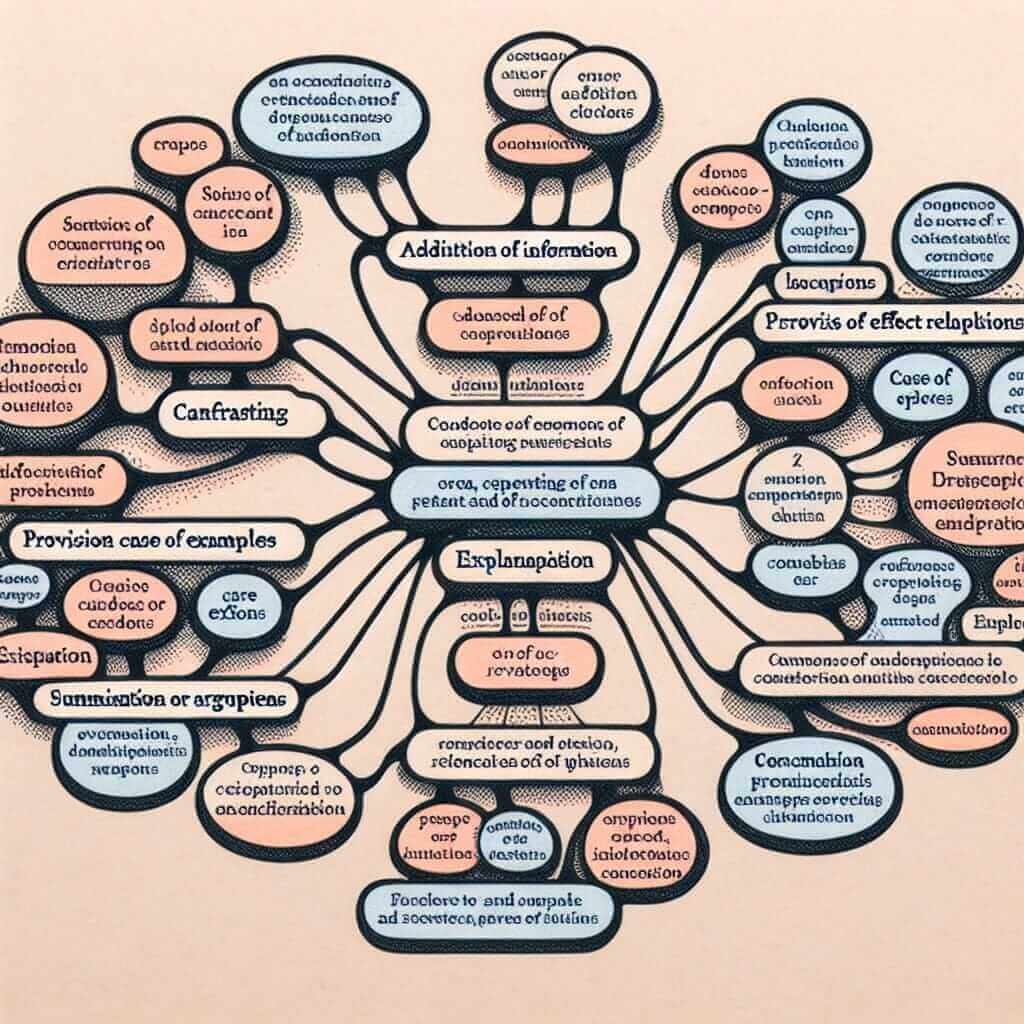Discourse markers are words or phrases that connect ideas and sentences, making your speech or writing flow smoothly and logically. Using them effectively is crucial for achieving a high band score in the IELTS exam, as they demonstrate your ability to use a wide range of language and organize your thoughts coherently.
Understanding Discourse Markers
Discourse markers are like signposts in your speech or writing. They guide the listener or reader, signaling transitions, adding emphasis, or expressing your attitude towards what you are saying.
Here are some examples of common discourse markers categorized by their function:
- Adding information: Furthermore, Moreover, In addition, Additionally, What’s more
- Contrasting ideas: However, Nevertheless, On the other hand, Conversely, Despite this
- Providing examples: For instance, For example, such as, To illustrate
- Expressing cause and effect: Therefore, As a result, Consequently, Thus, Due to
- Summarizing or concluding: In conclusion, To summarize, In a nutshell, Overall
Illustrative Examples of Discourse Markers in Action
Let’s see how discourse markers can elevate your language with some concrete examples:
-
Without discourse marker: Some people prefer living in cities. They have access to more job opportunities.
-
With discourse marker: Some people prefer living in cities because they have access to more job opportunities.
-
Without discourse marker: Learning a new language is challenging. It is incredibly rewarding.
-
With discourse marker: Learning a new language is challenging. However, it is incredibly rewarding.
-
Without discourse marker: Regular exercise has many benefits. It improves cardiovascular health. It boosts your mood.
-
With discourse marker: Regular exercise has many benefits. For instance, it improves cardiovascular health and boosts your mood.
 Discourse Markers Examples
Discourse Markers Examples
Applying Discourse Markers in IELTS
Using discourse markers effectively is important for both the Speaking and Writing sections of the IELTS exam:
IELTS Speaking
In the IELTS Speaking test, using discourse markers naturally will make your responses sound more fluent and sophisticated.
Example:
Examiner: “What are the benefits of learning a new language?”
You: “Well, learning a new language can broaden your horizons by allowing you to experience different cultures firsthand. Moreover, it can enhance your career prospects in today’s globalized world. And of course, it’s a fantastic way to challenge yourself intellectually.”
IELTS Writing
In the IELTS Writing test, discourse markers are essential for organizing your ideas and creating cohesive paragraphs.
Example (Writing Task 2):
“Some people believe that technology has made our lives easier, while others argue that it has made us more stressed. Discuss both views and give your own opinion.”
Body Paragraph:
“On the one hand, technology has undoubtedly simplified many aspects of our daily lives. For example, online banking and shopping have eliminated the need to physically visit banks and stores, saving us time and effort. Furthermore, social media platforms allow us to stay connected with friends and family across the globe, fostering a sense of community even when physically separated.”
Common Errors and Misunderstandings
While discourse markers are powerful tools, using them incorrectly can negatively impact your score. Here are some common pitfalls to avoid:
- Overusing discourse markers: Using too many can make your writing sound repetitive and unnatural.
- Using a marker that doesn’t fit the context: Each marker has a specific meaning, so ensure it logically connects your ideas.
- Using informal markers in formal writing: Avoid using overly casual markers like “So” or “Anyways” in academic essays.
Tips for Mastering Discourse Markers
- Expand your repertoire: Learn a variety of discourse markers and practice using them in different contexts.
- Pay attention to their function: Understand the purpose of each marker and how it connects ideas.
- Listen and read actively: Pay attention to how native English speakers use discourse markers naturally.
- Get feedback from a teacher or tutor: Have someone review your writing and speaking to identify areas for improvement.
Conclusion
By mastering the use of discourse markers, you can significantly enhance the clarity, fluency, and sophistication of your language, ultimately boosting your IELTS score. Remember to practice using them regularly and to pay close attention to their appropriate use in different contexts. Good luck!


